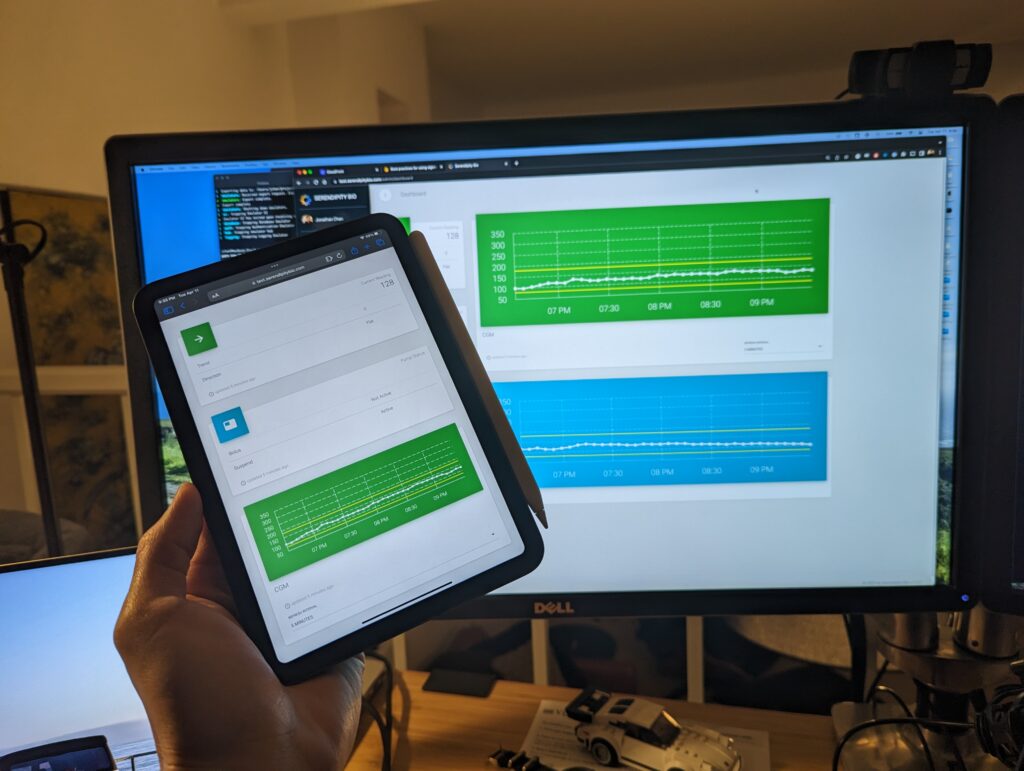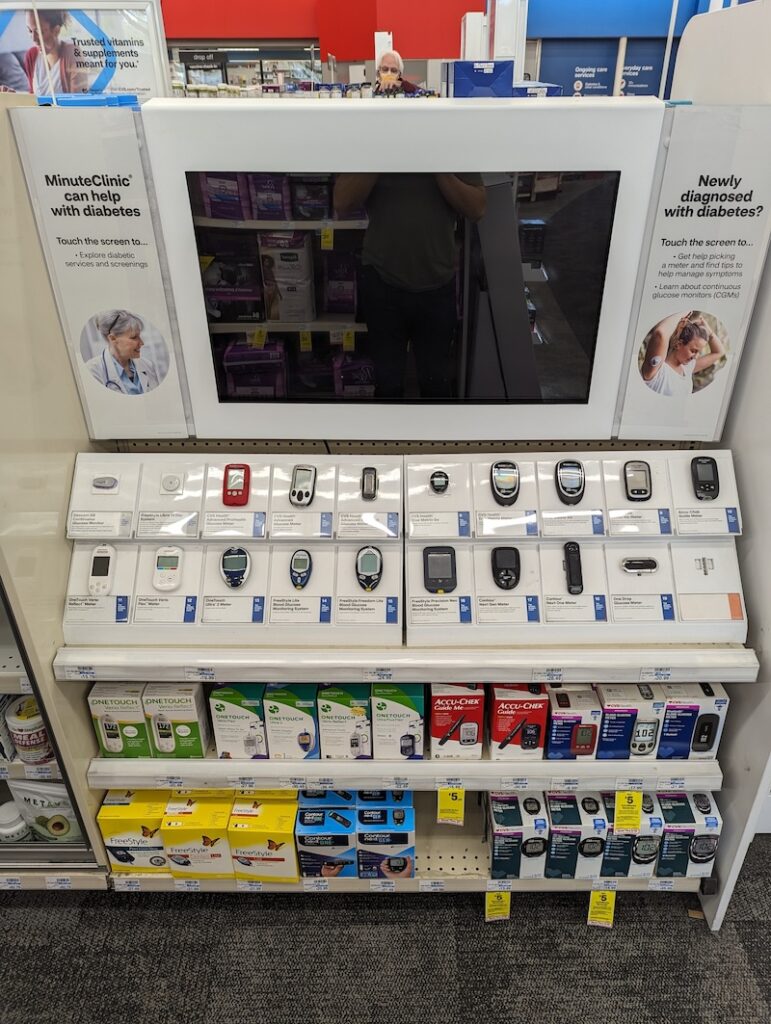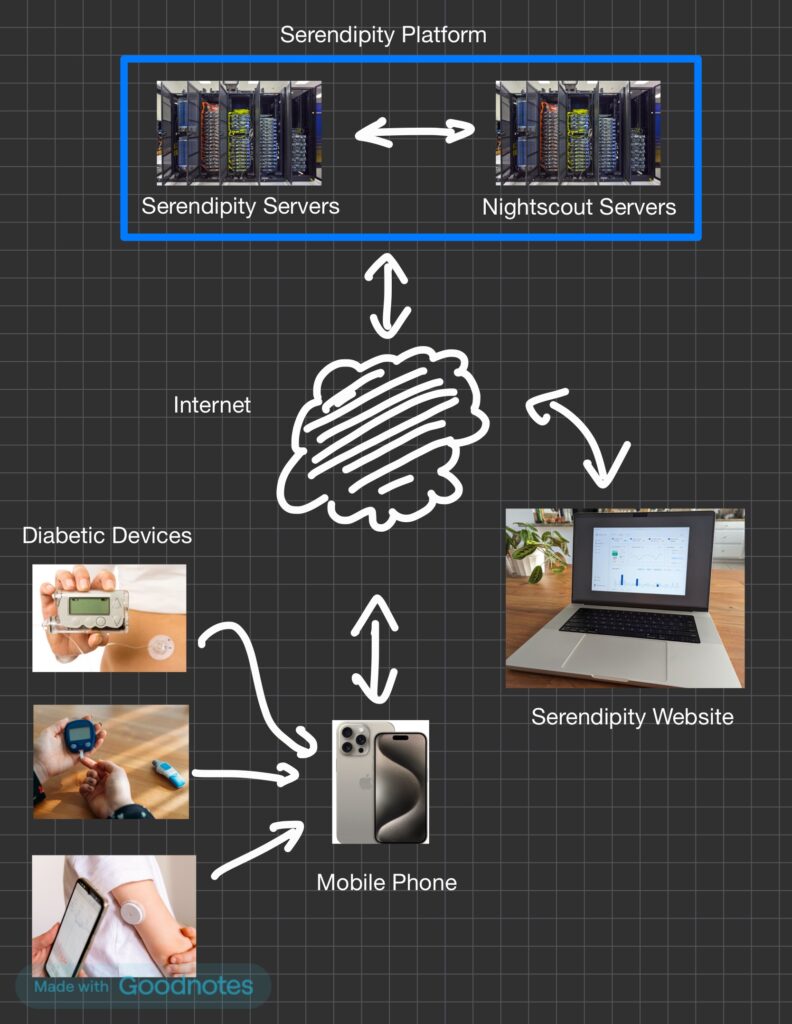
Hey all, been a while since I’ve provided Serendipity updates, so here they are!
Tactical
- Google ads campaign
- About a month ago, I launched a Google ads campaign trying to garner more users. I’ve shut it down due to lack of conversions.
- The initial campaigned demonstrated a lot of my traffic is coming from click-farms and rarely provides any conversions to subscribers. This is a pretty nuanced problem but I’ll save this discussion for another time.
- Bugs & API development
- During Christmas I shipped a feature that resulted in a bug where the service launches two Nightscout servers at once. The bug is now patched.
- I’ve begun working on integrating some new APIs onto the service that will help lay the path for future features (super excited about this).
- Stripe fees are expensive!
- A quick observation, while convenient (and fully integrated) Stripe takes a pretty large percentage to process payments! This was accounted for in my pricing model but probably something to investigate as more users sign up.
Product
This is long overdue, but what the hell am I selling?
Serendipity is a hosting service for an application called Nightscout.
Which leads us to ask, what is Nightscout and why does it exist?
Nightscout is a cloud-based diabetic data platform that exists to unify data amongst fragmented diabetic devices, in real time. These devices include things like insulin pumps, continuous glucose monitors (CGMs), and blood glucose meters (BG meters).
Nightscout allows folks living with type 1 and type 2 diabetes, the ability to aggregate, visualize, and report data from the devices that help keep them alive.
The next time you’re at a drugstore, take a peak at the diabetic healthcare aisle. Below is a selection of blood glucose meters for sale at CVS:

Throughout the diabetic device industry, manufacturers have not been able to unify their data APIs for third-parties to consume.
Buying a device from a single manufacturer obligates you to use their software product. Similar to the ecosystem battle Apple and Google place us into – a similar version of this battle takes places on the battlefield of diabetic devices.
What’s the Friction Nightscout Users Face?
- It’s extremely difficult to set up and operate Nightscout for most people.
- It costs money to operate and run Nightscout.
- It’s difficult to find support.
I’ll demonstrate and explain the first friction point with two examples.
Example 1: For the technical folks, Nightscout was created as a single-tenet service. Each user must run their own Nightscout server and Mongo database in order to aggregate the data from their devices. This includes:
- Forking the repo
- Deploying to a cloud-provider or locally hosted solution
- Dealing with SSL encryption between the server and upload devices
- Setting up DNS for the server
- Provisioning and maintaining a database that stores the various data from users’ devices.
Example 2: For the non-technical folks, imagine for a minute, you want to find an apartment to rent. Most of the time, you’d find a building to live in, fill out an application, and a few days later (hopefully) you have keys to your very own apartment. You do the usual process, hire movers, get your utilities activated, etc… With a little fuss, you’re living your swanky new apartment.
Now imagine that above process doesn’t exist and you want to live in a building called Nightscout. In order to live in the Nightscout building, you’d have to:
- Check out building blueprints from city hall
- Get the correct construction permits
- Get the raw materials for the building
- Find the right contractors, laborers, etc…
- Manage the entire construction project yourself
- Manage maintenance of the entire building once it’s built. Yourself.
Hopefully, with both examples, we start to see the value proposition of a managed service (and finding a good landlord)!
Let’s talk about the second pain point – cost.
We’ll stay away from pricing strategy for today and focus on how this affects Nightscout and Serendipity.
People don’t like paying for software.
In the case of Nightscout, potential users have to find a hosting solution that costs a non-zero amount of money. This particular cost of hosting is driven into further conflict because diabetes costs A LOT of money to keep yourself or loved ones alive.
Every. Day.
Let that sink in.
Every day, week, or month, you have to buy insulin, lancets, medications, and devices to keep yourself alive and be able to go about your day. Would you or anyone you know want to pay a subscription, to run a piece of software, that helps keep you more healthy and alive?
The friction caused by cost is prevalent given all the Internet services we use every day that are considered free. Google, Facebook, Instagram arguably provide value to us every day but they don’t cost us any dollar amount to keep using.
All of us, not just Serendipity and Nightscout users, have been conditioned to desire free software.
Hopefully with the short paragraphs above, we start to see the complexities and challenges of pricing and cost sensitivity in this space.
Let’s talk about the final pain point, getting support.
Nightscout has an extremely strong open source culture – which has lended to its success. However, with any open source project, no matter how much love and attention goes into the code, there are limited resources to support users’ needs as adoption increases.
Support channels exist but they’re spread amongst Discord, Facebook groups, GitHub, and other websites. Documentation is often buried within various links in comments and discussions.
When users encounter issues they find themselves delving into deeply technical topics or enter winding discussions without any immediate resolution to their Nightscout issue.
I’ll wrap out this with a light hearted example.
Think about a time you needed service for your car. Maybe the car was making a funny noise and you had a big road trip in the coming days. Remember the hassle of trying to find the manual, diagnosing the issue, or talking with your mechanic. Maybe you also scoured the Internet hoping someone else remedied that weird noise.
After maybe a day or two or a few hours you reluctantly drive to the dealership and paid the hefty-service fee to get the car repaired. You finally get home hundreds of dollars out of pocket only to see they performed a simple repair that took 15 minutes. Frustrating and expensive.
That’s the support friction being experienced.
What’s the Value?
Serendipity fully automates the process of launching a Nightscout server and database. By the time the user is done signing up and logging in, the Nightscout server is running and ready to receive data.
With some additional configuration on the user’s mobile phone, which uploads data to the newly running Nightscout server, users are able to see their data in real-time.
Here’s a little diagram for those of us that prefer visual explanations:

Alongside providing the hosting layer, Serendipity provides support via automation and an ever-growing support page.
Users utilize support email that gets triaged by me once a day. This doesn’t scale in the long term but with the size of my customer base and complexity of the software, this is an acceptable workload. This let’s me accomplish two things:
- Build a personal connection with the customer
- Understand other pain points Serendipity users experience
With the aforementioned documentation and manual support, I authored automation, while building the core application, to streamline debugging and maintenance. Updates and patches are easy to ship and don’t require too much effort.
The sharp eyed folks will notice that I’ve only tackled 2 of the 3 pain points. While that’s indeed true, I’ve established a quality of service that adds value to the user, at a price point that’s palatable.
During this phase of Serendipity, my focus is ensuring the platform continually demonstrates value to new and current users rather than winning users on price alone.
Next
I’m extremely excited for the future of Serendipity after acquiring the first sets of customers these last few months!!
In the coming weeks, I’ll be shifting gears a bit to tackle the following:
- Attracting more users
- Building features
- Business development
I have a few things I’m working on right now that aren’t ready for sharing so expect more updates in a few weeks!
Want to chat or have someone that would benefit from using Nightscout? Reach out to me via email!
All the best,
Jonathan